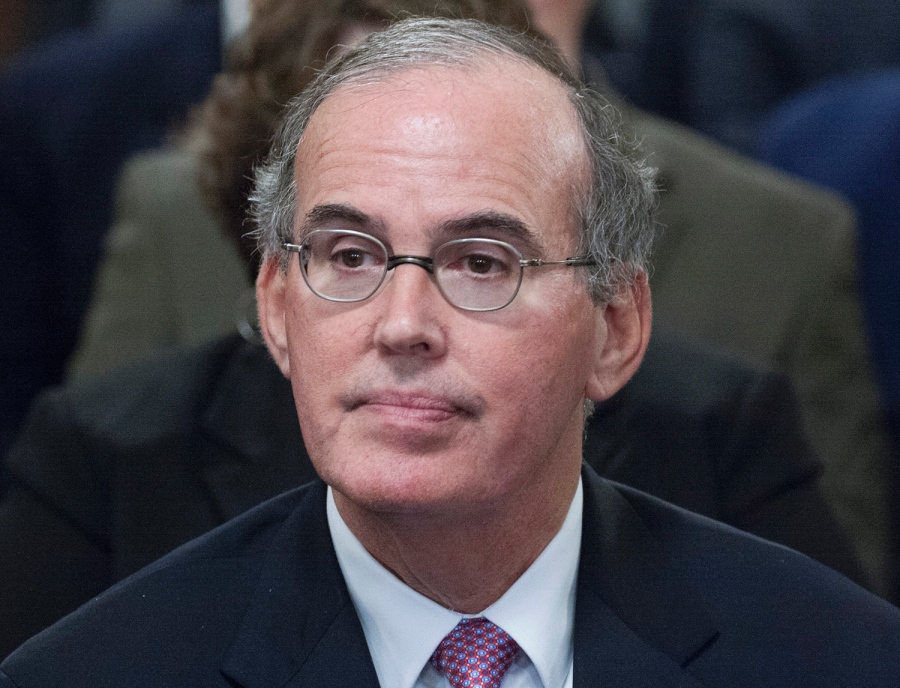
Inspector General says lack of leadership led to widespread problems at DC VA
Abbreviated from STARS AND STRIPES Credit: NIKKI WENTLING - WASHINGTON — A culture of complacency at the Department of Veterans Affairs medical center in Washington D.C. allowed widespread failures to persist for years, putting veterans at risk and weakening core functions of the hospital, according to new findings from the VA Inspector General’s Office.
An extensive report released Wednesday by the inspector general details “systemic” and “formidable” problems at the Washington DC VA Medical Center since 2013.
“Failed leadership at multiple levels within VA put patients and assets at the DC VA Medical Center at unnecessary risk and resulted in a breakdown of core services,” VA Inspector General Michael Missal said in a written statement. “It created a climate of complacency that allowed these conditions to exist for years.”
The issues were many and varied. Inspectors found a consistent lack of medical supplies and equipment, dirty and unsterile conditions, a flawed inventory system and chronic understaffing. They also discovered a backlog of thousands of delayed orders for items such as eyeglasses, hearing aids, surgical implants and prosthetic limbs.
More than 1,300 boxes containing veterans’ personal health and identification information were found unsecured in a warehouse, the hospital basement and a trash bin, according to the report. Millions of dollars were spent without the controls to determine whether the expenses were necessary.
Hospital and regional leaders were tipped off about the problems multiple times during the past five years but didn’t intervene, the report states. Inspectors said they deflected blame and failed to address the “prevalent and deeply intertwined” issues with any sense of urgency.
“It was difficult to pinpoint precisely how the conditions described in this report could have persisted at the medical center for so many years,” inspectors wrote. “At the core, the IG noted an unwillingness or inability of leaders to take responsibility… [and] found that a culture of complacency and a sense of futility pervaded offices at multiple levels.”
The former director, Brian Hawkins, was immediately removed from his duties and officially fired in September. He was replaced by Lawrence Connell, a senior adviser at VA headquarters.
“I was not aware of these issues,” he told reporters during a Wednesday news conference at the hospital, which is located just three miles from the White House and VA headquarters.
“This report has identified unacceptable findings of grave concern to all of us in leadership,” Shulkin said. “This represents to me a failure of the VA system at every level – a failure at the facility level, a failure at the network level and a failure at the central office.”
Some of the findings at the Washington hospital likely exist at other VA facilities, Shulkin said. He’s ordered reviews of job vacancies at all facilities and tasked an independent health care organization to conduct onsite, unannounced inspections of VA hospitals nationwide, he said.
Shulkin also announced leadership changes. Bryan Gamble, who helped lead the Orlando VA, was moved to Washington to oversee three VA networks of particular concern, including the VA Capitol Health Care Network of which the Washington hospital is a part. The other two are the New England Healthcare System and the Desert Pacific Healthcare Network. Together, the three networks are responsible for about 20 VA hospitals.
Shulkin announced the retirement of Michael Mayo-Smith, the leader of the New England network, and Marie Weldon, who is in charge of the Desert Pacific network in Phoenix, at the end of the month. On Tuesday, members of Congress called on Mayo-Smith to be removed from his position. Rep. Annie Kuster, D-N.H., criticized his response to findings last year of deteriorating conditions at the VA hospital in Manchester, N.H.
“These choices on retiring were totally the choice of the individuals. There should be no attempt to read into anybody being forced out of this organization,” Shulkin said.
Restructuring will start in those regions, and the changes will likely extend across the country, Shulkin said. A restructuring plan is expected to be in place by May.
VA leadership first reviewed the IG’s full report last month. In a written response, Carolyn Clancy, the executive in charge of the VA health care system, insisted “substantial progress” had been made at the Washington facility since the interim report was issued in April 2017.
The VA awarded a nearly $9 million contract to construct a 14,200-square-foot sterile processing space at the DC hospital that will be completed in 2019, Clancy wrote in a letter attached to Wednesday’s report. The agency also spent $3.1 million on surgical instruments for the hospital, she said.
The 43-person team that completed the investigation concluded that no patients had died or been physically harmed because of the problems outlined in the report. They credited a group of committed staff members who “worked around these challenges and improvised as necessary” to provide the best possible treatment, the report states.
“We are all grateful to the staff at the DC VAMC who demonstrated strength, creativity and commitment to ensure that veterans were safe during this difficult time,” Clancy wrote in her response.
However, inspectors determined patients were put at risk and their medical care affected. The report cites incidents of surgical procedures being delayed or canceled because of a lack of supplies and instruments, and some veterans waited months to get the equipment that they needed.
As of March 2017, the hospital had more than 10,900 delayed orders, including nine for prosthetic limbs. In one case, a veteran requested a new artificial leg because of pain and waited more than a year to get one. In the end, the veteran moved away from the Washington area and received a new prosthetic from a VA facility in a different state – 417 days after he first requested it.
For more information visit the full article here
“There is no doubt there have been unfortunate distractions,” he said. “Those days are over. My leadership team is totally focused on this work.”



